- News
- Reviews
- Bikes
- Accessories
- Accessories - misc
- Computer mounts
- Bags
- Bar ends
- Bike bags & cases
- Bottle cages
- Bottles
- Cameras
- Car racks
- Child seats
- Computers
- Glasses
- GPS units
- Helmets
- Lights - front
- Lights - rear
- Lights - sets
- Locks
- Mirrors
- Mudguards
- Racks
- Pumps & CO2 inflators
- Puncture kits
- Reflectives
- Smart watches
- Stands and racks
- Trailers
- Clothing
- Components
- Bar tape & grips
- Bottom brackets
- Brake & gear cables
- Brake & STI levers
- Brake pads & spares
- Brakes
- Cassettes & freewheels
- Chains
- Chainsets & chainrings
- Derailleurs - front
- Derailleurs - rear
- Forks
- Gear levers & shifters
- Groupsets
- Handlebars & extensions
- Headsets
- Hubs
- Inner tubes
- Pedals
- Quick releases & skewers
- Saddles
- Seatposts
- Stems
- Wheels
- Tyres
- Health, fitness and nutrition
- Tools and workshop
- Miscellaneous
- Buyers Guides
- Features
- Forum
- Recommends
- Podcast
news
“You’re just confusing drivers with this nonsense”: Cyclists blast road safety group for warning “never attempt to undertake on the inside, even in a cycle lane”; Time for an Ineos women’s team?; Dog walker nearly wipes out Hirschi + more on the live blog
SUMMARY
No Live Blog item found.
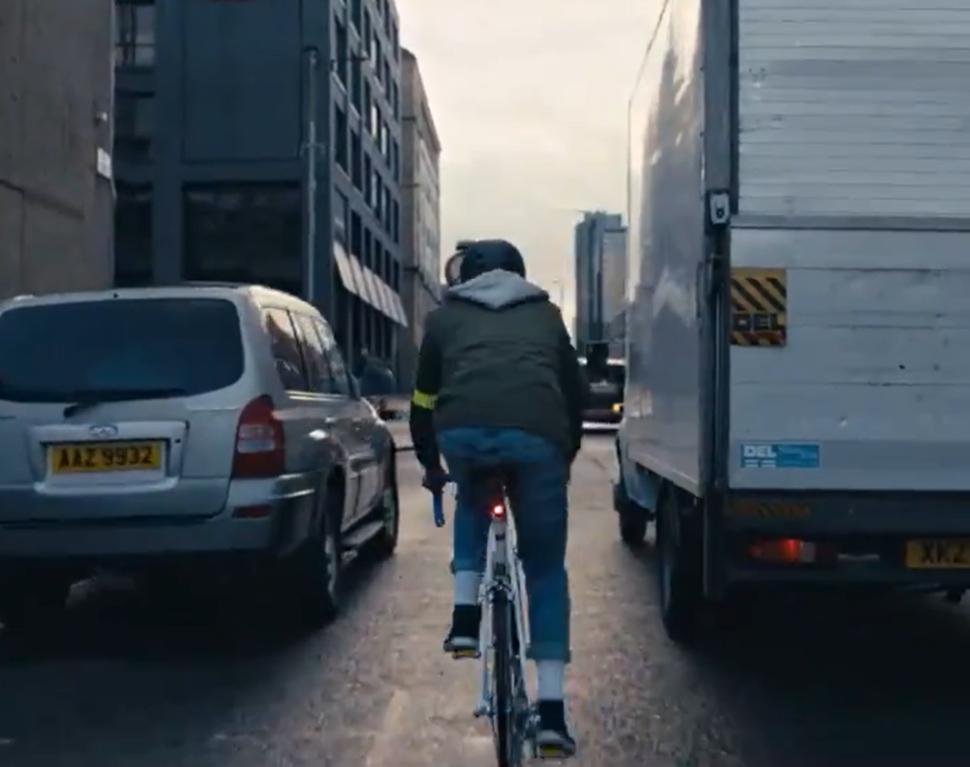 Road safety advert, Northern Ireland (Share the Road to Zero)
Road safety advert, Northern Ireland (Share the Road to Zero)11 June 2024, 15:07
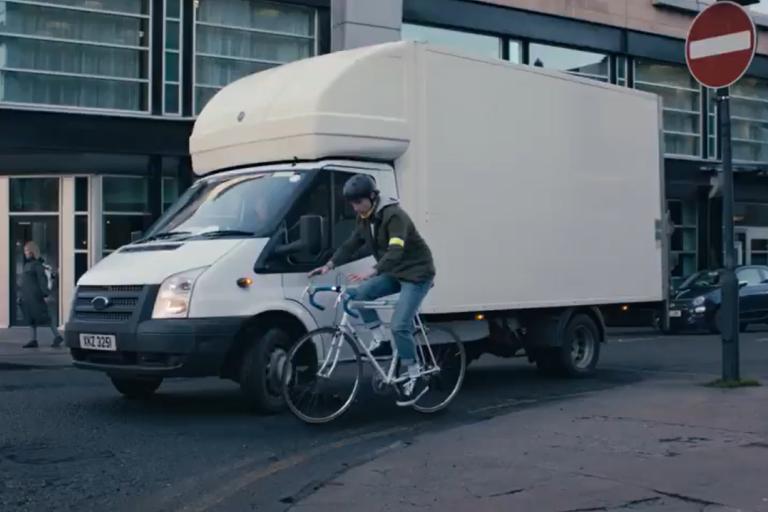
“You’re just confusing drivers with this nonsense”: Road safety group tells cyclists “never attempt to undertake on the inside, even in a cycle lane” – but cyclists say advice “excuses bad driver behaviour”
I think I sense a theme developing this week on the live blog…
Yesterday, you may remember, Thames Valley Police – again – came in for flak after posting some since-deleted road safety guidance on social media, advising cyclists to “be safe, be seen” and telling them that “road users can’t look out for you if you are in dark clothing and can’t be seen”.
Rather inevitably, the hi-vis clothing guidance led to accusations of “victim blaming” from cyclists on Twitter, and prompted the second deleted post in a week from Thames Valley’s account. Oh, dear.
With TVP in need of a well-earned social media break, today’s questionable online road safety advice comes courtesy of Northern Ireland and its ‘Share the Road to Zero’ initiative, a road safety community programme with the stated aim of eliminating all road deaths in Northern Ireland.
To mark the Bike Week, the UK’s annual awareness-raising event for cycling, Share the Road to Zero has been sharing a series of road safety ads which have aired on television in Northern Ireland over the past few years.
Today’s clip features a cyclist filtering past a van driver indicating to turn left. Then, in a sequence repeated in all of the campaign’s videos, the incident gives way – just before the inevitable collision – to an imagined conversation in which the driver tells the startled cyclist that he was “in my blind spot”, before the voiceover urges us to “look out for each other”.
Which all sounds fair enough.
But the problem – as many have noted on social media – stems from the written advice that accompanied the video.
“Remember vehicles’ blind spots when you’re cycling,” Share the Road to Zero wrote.
“Never attempt to undertake on the inside, especially at junctions, even if there is a cycle lane.”
Remember vehicles' blind spots when you’re cycling.
Never attempt to undertake on the inside, especially at junctions, even if there is a cycle lane.#BikeWeekUK @niroadpolicing @deptinfra @CyclingUK_NI @SustransNI @cyculcc @CyclingUlster @pcsp_s pic.twitter.com/9wOFKCTtf0— roadtozero (@roadtozero) June 11, 2024
It’s that advice, particularly concerning the ability of cyclists to “undertake” while riding in a bike lane, which has attracted some amount of consternation and debate on social media.
“Whilst I agree it’s not a good idea to pass a vehicle on the inside in certain situations, if a cyclist is in a cycle lane, then they are not ‘undertaking’,” wrote Gary.
“They are passing in their lane and it’s the driver’s responsibility to look out for them and not kill or injure them.”
Others noted that the advice seems to contradict the Highway Code, the most updated form of which is yet to be implemented in Northern Ireland (though rule 160 of NI’s current code advises drivers to “be aware of other vehicles especially cycles and motorcycles that may be filtering through traffic”).
“Completely incorrect, you’re just confusing drivers with this nonsense,” added Adespoto. “At junctions the cyclist has priority whether or not there’s a cycle lane. Read the rules.”
“Please delete this tweet immediately, it contradicts the Highway Code and sends out a very dangerous message to drivers that they can cross a bicycle lane without checking to make sure it is clear before doing so,” wrote John.
Meanwhile, the Spiky Club accused the campaign of appearing “to not have picked up a copy of the Highway Code in the last thirty years”.
“Filtering on either side is expressly permitted and drivers are warned to expect it,” they wrote. “Your advice runs counter to the Highway Code. Be ashamed of yourselves and delete this tweet.”
Mustapha Cycled added: “Your intentions are in the right place but this message is fundamentally in conflict with the Highway Code.”
Over on Facebook, the advice was similarly challenged.
“Passing on the left at a junction would be shared fault according to the UK Highway Code,” said Simon. “Without a junction it would be entirely the drivers fault, especially with a cycle lane. The OP got it wrong this time.”
However, not everyone was rushing to condemn the community programme’s guidance.
“That’s a difficult one,” said the PhoneKills Twitter account. “That’s good advice to stay defensive on the junctions and larger vehicles have blind spots.
“Anyhow filtering on the inside is regulated clearly in HC, and it’s allowed. This tweet will get a lot of hate, but I’m on the fence here.”
And, finally, John accused the campaign of “excusing bad driver behaviour”:
‘None so blind as them that don’t look’. No excuse for ‘blind spots’ given the range of multi-angled mirrors available not to mention cameras and peripheral sensors (just a version of the parking sensors that were in Poundland for a pound a couple of decades ago).
The claim of ‘blind spots’ is just a statement that the vehicle is not fit for the road. Again, your posts seem to excuse bad driver behaviour. The ‘blind spot’ argument isn’t used when there are narrow lanes and motor vehicles are within a hand’s breadth of each other.
I see Bike Week has started well, then…
11 June 2024, 15:48
“They never seem to stop at red lights so they can’t be that vulnerable”: Share the Road to Zero’s close pass advert attracts social media backlash – this time from motorists
I think it’s fair to say that Share the Road to Zero’s Bike Week campaign probably hasn’t gone as swimmingly as they would have hoped.
As noted earlier, the programme’s questionable cycle lane filtering advice was the second of a series of road safety posts created to mark Bike Week, using videos from a recent ‘Respect Everyone’s Journey’ campaign.
While today’s advice may have attracted the ire of cyclists, yesterday’s clip – featuring a close pass – seemed to annoy quite a few motorists on social media.
The video – which was filmed where my local 16-mile club time trial starts and finishes (now there’s some useless trivia for you) – shows a driver narrowly overtaking a cyclist, leading to the following ‘A Christmas Carol’ style conversation, in a bid to highlight the human aspect of road users:
‘Hi, I’m Chris. It’s scary when someone passes this close.’
‘Oh, sorry. I’ll leave you a lot more room.’
Alongside the video, Share the Road to Zero wrote: “People who cycle are more vulnerable on the roads. Give them space
“Drivers – when passing a cyclist, give them as much room as you would when overtaking a car, at least 1.5-2 metres.”
And the response to that bit of advice? Some anti-cycling bingo classics, of course…
“They never seem to stop at red lights so they can’t be that vulnerable.”
“If cars have to give 1.5m to pass a cyclist, then cyclists should be banned from every road where that’s not possible without driving on the wrong side. Which is pretty much every road going.”
“Licence, road tax, insurance, and equal liability and maintaining the same speed and rules as other traffic. Then you can consider it an equal right.”
“They should cycle on the cycle path maybe.”
(Ah yes, that overabundance of cycle paths in Northern Ireland.)
“This is why there are so many accidents on our roads,” road.cc reader Paul, who sent us the clip, told us.
“A simple post about close passing and motorists from all over the UK, USA, and Australia are showing how little they know about driving. The UK government really needs to do something to educate drivers since the Highway Code update.”
Who knows, maybe everyone can get on board with tomorrow’s Bike Week safety message? Or maybe not…
11 June 2024, 16:16
High Court judge dismisses legal challenge to government’s cycling funding cuts
A High Court judge has ruled against campaigners who mounted a legal challenge after the government last year cut the budget for active travel schemes by two-thirds.
Transport Action Network (TAN) says it hopes to appeal and is “bitterly disappointed”, having believed the cuts of around 65 per cent — made by the Conservative government to the active travel budget in March 2023 — were unlawful and “outside the framework provided” by the Cycling and Walking Investment Strategy (CWIS) made under the 2015 Infrastructure Act.
Read more: > High Court judge dismisses legal challenge to government’s cycling funding cuts
11 June 2024, 14:42
Oblivious dog walker thwarts late Marc Hirschi attack, as Thibau Nys continues breakthrough year on the road with impressive uphill sprint win at Tour de Suisse
The lumpy, rollercoaster character of the opening road stages of this year’s Tour de Suisse has given us some exciting racing, as Lidl-Trek’s 21-year-old upstart Thibau Nys continued his break-out season on the road, and continued to shake off his ‘Son of Sven’ tag, by powering to an impressive win in today’s punchy uphill sprint in Rüschlikon, beating a “disappointed” Stevie Williams and the in-form Alberto Bettiol comfortably at the line.
WHAT AN INCREDIBLE FINALE 🚀
Thibau Nys wins in spectacular fashion to take the victory on Stage 3 of the Tour de Suisse 🇨🇭#roadcycling #tourdesuisse #cycling pic.twitter.com/xHj0Rq1sYD
— Eurosport (@eurosport) June 11, 2024
With a series of category three climbs punctuating stage three’s finale, it was the descent off the Albispass, with 10km to go, where we witnessed the first concerted Tom Pidcock downhill attack of the summer, the flying Ineos rider brought back eventually by the alert Bettiol and what appeared to be a minor mechanical problem.
Then, with three kilometres remaining, UAE Team Emirates’ Marc Hirschi – whose teammate Adam Yates had forced the pace on the Albispass – launched a big dig over a short, steep rise.
Much like Bettiol’s late attack yesterday, Hirschi was reeled in within the final kilometre as the road kicked up towards the finish, but only after the Swiss puncheur was briefly put off on a downhill section by an oblivious pedestrian walking her dog and briefly attempting to cross the road in front of the fast-descending rider – only to realise a bike race was passing by just in the nick of time.
Schweizer Eigenverantwortung (Symbolvideo)
cc: @outofcycling#tds2024 #tourdesuisse pic.twitter.com/mVUQdOxt03
— Noé Pollheimer (@NPollheimer) June 11, 2024
This is becoming something of a habit lately:
It would have taken more than a daydreaming dog walker to beat Nys today though, as the 21-year-old saw off Williams’ challenge to add another big stage win to a season that’s already included wins at the Tour de Romandie and Tour of Norway, along with two stages and the overall title at the Tour de Hongrie.
Turns out the cyclocross riders with famous cycling fathers are pretty handy, aren’t they?
11 June 2024, 13:55
Tour de France Unchained: Making up riders’ nicknames since 2023
The first reviews are in (kind of)…
I swear I've never heard anyone call Fabio Jakobsen "Hulk" but Tour de France: Unchained is gaslighting me into believe that's been his nickname forever.
— Benji Naesen (@BenjiNaesen) June 11, 2024
If we can ignore the weird attempts to coin nicknames, apparently – according to the court of Cycling Twitter, anyway – this series is very good, and an improvement on the original. Just don’t call him Hulk…
11 June 2024, 13:23
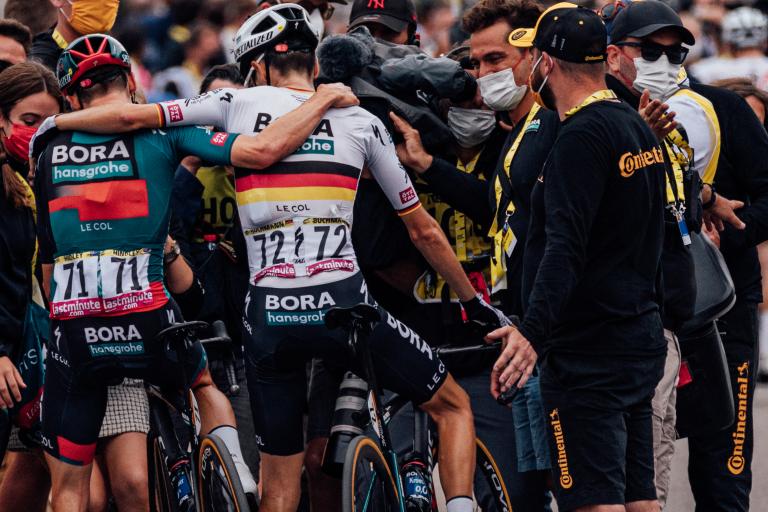
The bad news keeps coming for Emanuel Buchmann, as German rider suffers broken hip and collarbone in Tour de Suisse crash – weeks after hitting out at team over Giro non-selection
It’s been a rough few months for Emanuel Buchmann.
The German champion, who calmly rode his way to fourth overall at the chaotic 2019 Tour de France, has enjoyed a frosty relationship with his Bora-Hansgrohe employers, after hitting out at the team for leaving him out of their Giro d’Italia squad.
The 31-year-old claimed on social media that he was only told two weeks before the Giro of his omission after spending time at altitude camp in Tenerife, a public spat that means he’s almost certain to leave the German outfit at the end of the season, with UAE-Team Emirates billed as possible suitors.
And yesterday at the Tour de Suisse, Buchmann’s underwhelming, stressful season got even worse, as he crashed hard just two kilometres from the finish in Regensdorf. Late last night, Bora confirmed that Buchmann had suffered a broken collarbone and a broken hip in the spill, and will undergo surgery for both injuries. Talk about bad luck.
Meanwhile, another rider enduring a strange, underwhelming season, Nairo Quintana, also did not start today’s third stage in Switzerland, after breaking a bone in his right hand in a separate crash. Despite still managing to finish 2.23 down yesterday, Movistar confirmed this morning that the Colombian – who was not part of Movistar’s long list for the Tour de France in any case – would not be able to continue the week-long stage race.
11 June 2024, 12:51
Check out GWR’s brilliant bike storage facilities! Oh wait, it’s from 1900…
Bicycles looked after on a Great Western Railway train at Paddington Station, London, circa 1900 pic.twitter.com/RSr5GIeI8f
— Cool Bike Art (@CoolBikeArt1) June 10, 2024
Meanwhile, in the brilliantly advanced 2020s:
11 June 2024, 12:19
When pro cyclists attack: Lilian Calmejane hits out in the peloton (again)
His angry exploits in the breakaways of the Giro d’Italia last month – which included not only berating his fellow escapees but also their team directors, as well as his own – may have cemented his reputation as something of a hothead, but Lilian Calmejane is showing no signs of letting up on the misdirected fury at the Tour de Suisse.
During yesterday’s stage to Regensdorf, the Intermarché-Wanty leader and former Tour de France stage winner was caught on camera shoving Tudor’s veteran climber Sébastien Reichenbach, somehow escaping punishment in the process:
Enorm DSQ til den kære Calmejane! pic.twitter.com/aBcn9W2OX5
— Ludvig Wacker (@LudvigWacker) June 10, 2024
Not a good look, Lilian. Not so Calm-ejane, eh? I’ll get my coat…
11 June 2024, 08:10
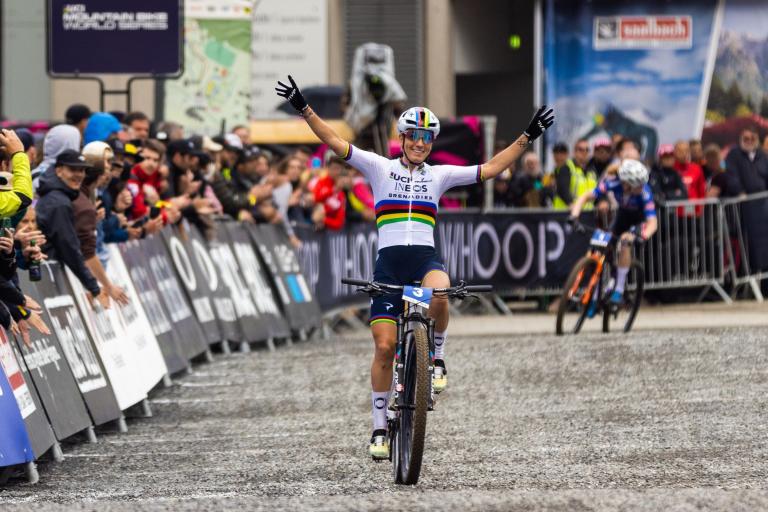
Is it about time Ineos set up a women’s cycling team? Fans call out “baffling, shameful” lack of interest in women’s sport after Ferrand-Prévot exit – but others say “it’s business”
Yesterday’s news that Pauline Ferrand-Prévot – to date the only female pro cyclist to race for the Ineos Grenadiers and the author of the British squad’s 500th victory – is set to return to road racing in 2025 with Visma-Lease a Bike has reignited that old debate that has been rumbling on in for 14 years…
Should Ineos set up a professional women’s team?
With some of the biggest and most successful teams in the men’s side of the sport, such as Visma, UAE, Lidl-Trek, DSM, Jayco-AlUla, Movistar, and FDJ, sponsoring their Women’s World Tour counterparts, Ineos’ distinct lack of interest (with the exception of their solitary backing of Ferrand-Prévot’s off-road career over the past two seasons) appears increasingly glaring, especially considering the rapidly growing nature of women’s cycling.
Of course, this is nothing new.
In 2009, when plans were being finalised for what would become Team Sky, Britain’s women were arguably making greater waves than their male equivalents.
When Dave Brailsford was waxing lyrical about developing a (male) Tour de France winner within five years, the women’s side already had their own double winner of the women’s version, Nicole Cooke, who also happened to be the reigning world and Olympic champion. Emma Pooley, another winner of what was then the Grand Boucle, was a year away from winning a world time trial title, while Lizzie Deignan (then Armitstead) was already winning and on the verge of a big breakthrough.
> Could Team Sky be about to run a women's team?
Meanwhile, the last British winner of a world title on the road was David Millar in the time trial in 2003 –Millar would be stripped of that title after admitting EPO use, a fact that ruled him out of involvement in the Sky project anyway.
With the exception of Mark Cavendish, who had already established himself as the fastest man in the world (and, again, wouldn’t be immediately involved with Sky), it would take until Bradley Wiggins’ surprise fourth at the 2009 Tour for Brailsford’s assertions of British grand tour dominance to not appear just a case of wishful thinking.
And it’s not that there weren’t attempts to drum up for a women’s Team Sky to exist alongside the men. A group of leading riders were rebuffed at the time, while another move to secure a women’s squad in the wake of the 2012 London Olympics was thwarted at Sky’s board level, a decision described by future team CEO Fran Millar nine years later as “an oversight”.
(The prioritisation of a less successful men’s group over the country’s high-achieving women is a long-running theme in British cycling, unfortunately – just ask Eileen Gray, who was forced to run the multi-world title winning British women’s team of the early 1960s, led by Beryl Burton, on a pittance, and often with outright opposition and sometimes sabotage from the BCF, while the men were afforded considerable backing and came away with little to show for it.)
However, the acquisition of French star Ferrand-Prévot in 2022 was, according to Ineos’ now departed deputy team principal Rod Ellingworth, a sign the team was at last “moving in the right direction”.
> Rumours surface about Ineos Grenadiers women’s team
Well, yesterday’s news seems to show Ineos have once more veered off course – and it’s left many fans and pundits on social media scratching their heads.
“It still baffles me that there is no women’s Ineos Grenadiers – or a Team Sky before that,” cycling writer Andy McGrath said on X, while fellow journo Richard Williams branded the lack of interest “a disgrace”.
“I guess when a sponsor gives you €30/40/50m a year and they don’t ask for it (especially when there are characters like James Murdoch and Jim Ratcliffe) you don’t bother pushing. It’s sad and ironically very reminiscent of what happened at Manchester United FC,” added Steve Fry, referring to the Glazer family’s decision to disband United’s women’s team after taking over in the mid-2000s.
“From a sponsorship perspective, Sky was a bit of a surprise. Ineos not so much,” said Ben Atkins.
(CorVos, SWpix.com)
“What baffles me is that with 50 million Ineos doesn’t have a women’s team, devo team, and still manages to retain a sponsor with deep pockets without winning a GT, a top one-week WT race or a world championships since 2021,” wrote Eurosport commentator Gonçalo Moreira. “Their business department is the team’s true star.”
“Baffling, and a huge miss to help develop the sport on the women's side in the UK. Honestly, I think it's pretty shameful, given the seeming unlimited resources the organisation have always had,” said Harry.
“It is shameful that any major team sponsor does not insist on female and male teams. Will Ineos be closing the Man Utd women’s team?” asked Wayne Mills.
Cycling writer Katy Madgwick also noted that “it’s actually much better at the Conti level for women than men here right now, the scene is ripe with talent, Ineos could easily just pick one and throw money at it.”
Pfeiffer Georgi and Anna Henderson drive the break at last week’s Tour of Britain Women (Alex Whitehead/SWpix.com)
While most onlookers were critical of Ineos’ disinterested stance, others described the decision as “business”.
“Thinking about it though, they’d have to have a long term plan,” said Dr Headgear. “Imagine the shit if they sponsored a team for three years and didn’t renew, leaving them short of a sponsor and... boom.”
“I’d probably rather see the Ineos organisation throw some structured money at one of the already existing UK women’s (and Devo) teams than create a new one,” added Stine Momo.
What do you think? Is the lack of an Ineos women’s team still baffling 14 years on? Or is the women’s side of the sport ticking along just nicely without Sir Jim’s input?
11 June 2024, 11:55
“Trams should replace cars, rather than people cycling”
The location of a proposed new tram line in Edinburgh, and whether it will be built on the city’s roads or instead along a popular off-road cycling and walking route, has been a hot topic of discussion in the Scottish capital, with interested locals being turned away from a public meeting on the issue as the venue had already reached capacity.
Plans to construct the new tram line to Granton along the Roseburn Corridor, a former railway line that is now home to a popular path for cyclists, walkers, and wheelers, have been opposed by a local campaign group, who argue that “trams should replace cars”, rather than people engaging in active travel.
Read more: > Fears new tram route will be built on popular active travel path
11 June 2024, 11:34
Quick, someone’s broken into Canyon HQ with the rainbow spray paint again!
First look at world champion Mathieu van der Poel’s latest custom rainbow-themed paint job for the Tour de France:
Thoughts/Comments?
11 June 2024, 11:01
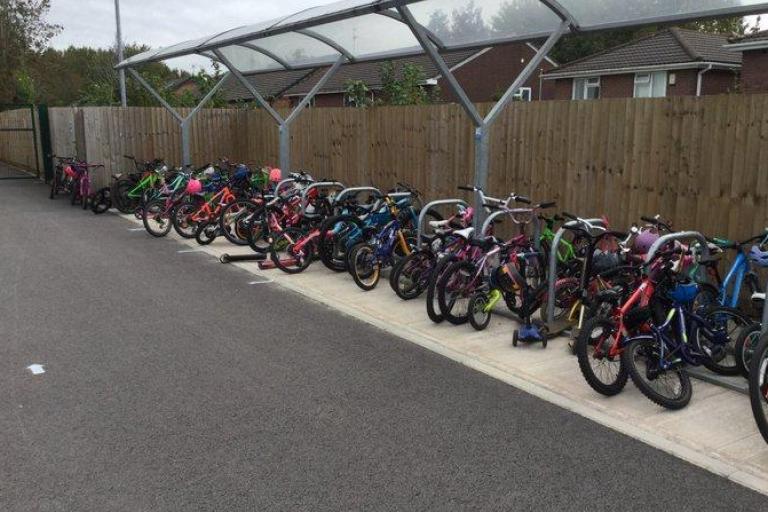
90 per cent of pupils cycling, walking, or wheeling to “active travel school” thanks to Cardiff primary school’s bike campaign to encourage families to ditch the car
Nine in ten pupils at a primary school in Cardiff walk, wheel, or cycle to school, six years after a campaign was launched encouraging families to ditch their car for the school run and get on bikes instead.
In 2018, Howardian Primary School, in a joint effort with Cardiff Council’s active travel team, introduced cycle clubs, training sessions, and bike-based initiatives such as ‘Bling your Ride’ events.
The school also brought in its WOW Tracker programme, funded by the council and supported by Living Streets, which rewards children with badges for regularly cycling, walking, or scooting to school.
Thanks to this cycle-centric approach, which involved engaging with pupils and parents from nursery to year six, 90 per cent of children at school now use active travel to get to school, an increase of over 50 per cent over the past six years.
Active Travel Day was a huge success yesterday! Thank you all for taking part! #ActiveJourneys pic.twitter.com/W7oXtGftI5
— Howardian Primary School (@HowardianPS) June 4, 2024
“When the school first opened in 2015, we knew we wanted to become an active travel school,” the school’s active travel lead Helen Thomas told the Cardiff Herald.
“We worked in partnership with Cardiff Council to set out our active travel plan which included goals and initiatives to engage, inspire, and support our pupils and their families in travelling actively to school. At the beginning just over half (58 per cent) of the children actively travelled to school but now it’s 90 per cent of pupils.
“The WOW Tracker has been a brilliant as it’s helped to foster a sense of accomplishment and participation in sustainable practises. Our initiatives are also for all students, regardless of their mode of transportation from wheelchair walks to park and strides.”
She continued: “Parents have been really supportive of our initiatives as well. When pupils first start, we try to encourage them to travel actively one or two days a week and work up to everyday. The school has given lots of information to parents and guardians to help them with this, from maps with park and stride areas highlighted on it to a special newsletter for active travel updates.
“We have previously had sessions after school where all family members can have their bicycles serviced and repaired for free on site, we really want to inspire families to not only join their children in active travelling to school but feel confident doing so.”
11 June 2024, 10:45
Popcorn at the ready: Series two of ‘Tour de France: Unchained’ is out now on Netflix
The day has finally arrived, when we’re all able to watch a somewhat overdramatised, slightly fictionalised version of last year’s Tour de France. Ah, these heady days we live in…
Damn it, just remembered – ‘Bake Off: The Professionals’ is on tonight too. Going to be a busy evening in front of the TV, then.
11 June 2024, 10:20
‘So Dad, what’s your plan for the weekend? Ah, just riding the Milan-Sanremo route again? Sounds great…’: When I’m Sixty-Four (I’ll ride the route of cycling’s longest race, just for fun)
Former Tour of Flanders and Liège-Bastogne-Liège winner Adrie van der Poel may be 64, but by the looks of his Strava, he’s still keen to show his monument-destroying son Mathieu who’s boss, after choosing at the weekend to ride his own 312km variation of Milan-Sanremo, just for fun…
Not sure he’ll have matched his son’s speed up and over the Poggio, but still – very impressive stuff.
11 June 2024, 09:48
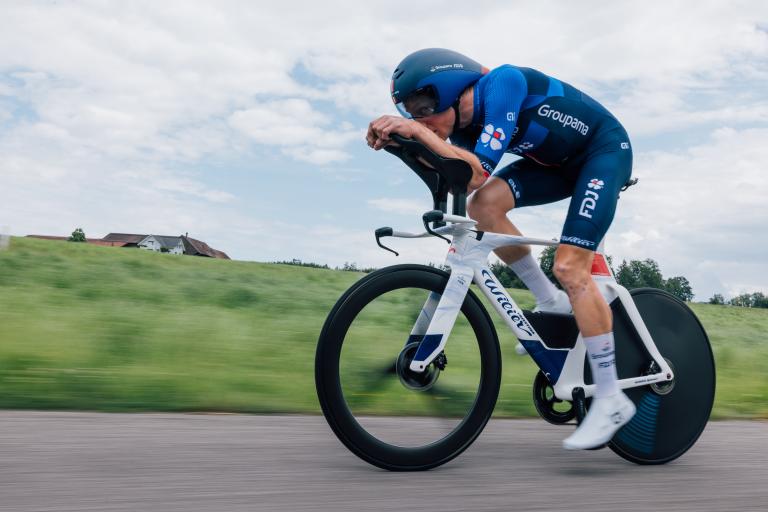
Wilier unveil “our best time trial bike ever”, designed in collaboration with Stefan Küng
After we spotted a plethora of interesting, unreleased tech at the Dauphiné last week (covertly or otherwise), new bike season continues at the Tour de Suisse, where Wilier unveiled their brand new Supersonica SLR.
Somebody in the Veneto has been listening to lots of Oasis by the sounds of things…
Anyway, Wilier says the Supersonica SLR is the Italian manufacturer’s “best time trial bike ever”, and it was designed in collaboration with Groupama-FDJ and the French team’s double European time trial champion Stefan Küng.
“The Supersonica project is the first genuine project developed from scratch together with Wilier,” Jérémy Roy, Paris-Nice stage winner and current material performance manager at Groupama-FDJ, said.
“Wilier's innovation lab department spent an enormous amount of time on it and the results came in record time. After so many virtual tests, followed by multiple wind tunnel tests, we are proud to see this fast and modern bike that took shape in less than a year. I must say that a solid foundation has been laid for the future of our partnership.
“The performance features can be seen in the extreme attention to detail: revised geometry, remarkable aerodynamic efficiency, improved rigidity, and a new improved handlebar.”
If you’re in the market for a new FDJ and King Küng-approved time trial machine, the frame alone will set you back €9,000, while the whole thing (including its tailor-made extension service) comes in at €27,400.
Despite making use of his new almost thirty grand bike, Küng could only manage eighth on Sunday’s admittedly very short opening time trial at the Tour de Suisse, though his young British teammate Samuel Watson finished sixth. Which may or may not mean the Supersonica is well suited to a classic out and back UK 10 miler.
As long as you pick tyres that can roll with it, and you don’t look back in anger at your minute man, of course (I’ll stop now)…
11 June 2024, 09:26
What pro cyclists get up to during stage races
Ever wondered what prologue supremo, classics man, and farming enthusiast Yves Lampaert gets up to after finishing a stage of the Tour de Suisse?
Well, the Soudal Quick-Step rider (and current race leader in Switzerland), after his warm down, dinner, and post-race massage, loves nothing more, apparently, than building Lego tractors:
We challenged #TourdeSuisse overall leader @yveslampaert to build a Lego John Deere 😁 pic.twitter.com/HbAy2US9gO
— Soudal Quick-Step Pro Cycling Team (@soudalquickstep) June 10, 2024
As John Deere advocate Lampaert would say – if he were from rural Northern Ireland – ‘If she’s not green, she shouldn’t be seen’, or maybe ‘Nothing runs like a Deere’.
Or they probably have similar sayings in Flanders, I suppose…
After obtaining a PhD, lecturing, and hosting a history podcast at Queen’s University Belfast, Ryan joined road.cc in December 2021 and since then has kept the site’s readers and listeners informed and enthralled (well at least occasionally) on news, the live blog, and the road.cc Podcast. After boarding a wrong bus at the world championships and ruining a good pair of jeans at the cyclocross, he now serves as road.cc’s senior news writer. Before his foray into cycling journalism, he wallowed in the equally pitiless world of academia, where he wrote a book about Victorian politics and droned on about cycling and bikes to classes of bored students (while taking every chance he could get to talk about cycling in print or on the radio). He can be found riding his bike very slowly around the narrow, scenic country lanes of Co. Down.
Latest Comments
- mattw 53 sec ago
I've only just spotted this....
- Another_MAMIL 23 min 37 sec ago
I also liked Polartec NeoShell and was disappointed it was discontinued. Polartec RPM looks similar, but it's unclear how NeoShell and RPM compare....
- pockstone 34 min 50 sec ago
"Due to the increasing speed of bicycles..., we have to expect that such accidents will happen more often.”...
- mdavidford 2 hours 1 min ago
Seems probably even more appropriate than what I originally intended.
- slc 3 hours 13 min ago
Credit to the author for attending the opposition meetings and trying to understand their concerns, but I agree with hp. There has been significant...
- RoubaixCube 4 hours 13 min ago
I like how youre using a Mojito X to advertise an Mojito 3
- Basemetal 4 hours 34 min ago
The PU dip on the palm and fingers is over the knitted nylon so not chilly in use, and the material is thick enough to provide some cushioning. It...
- Geoff H 4 hours 49 min ago
“jumped-up, arrogant” cyclists motorists causing “carnage” and posing a risk to pedestrians everyone else. Fixed it ..........
- chrisonabike 4 hours 59 min ago
Given that - at least in UK- we have a mostly flip-flop political system and parties in power eventually run out of credit with the electorate -...
- OldRidgeback 6 hours 2 min ago
If he'd been able to get hold of one of the rarer five speeds, it would've had a better choice of ratios. You can see it's got proper brakes, a big...
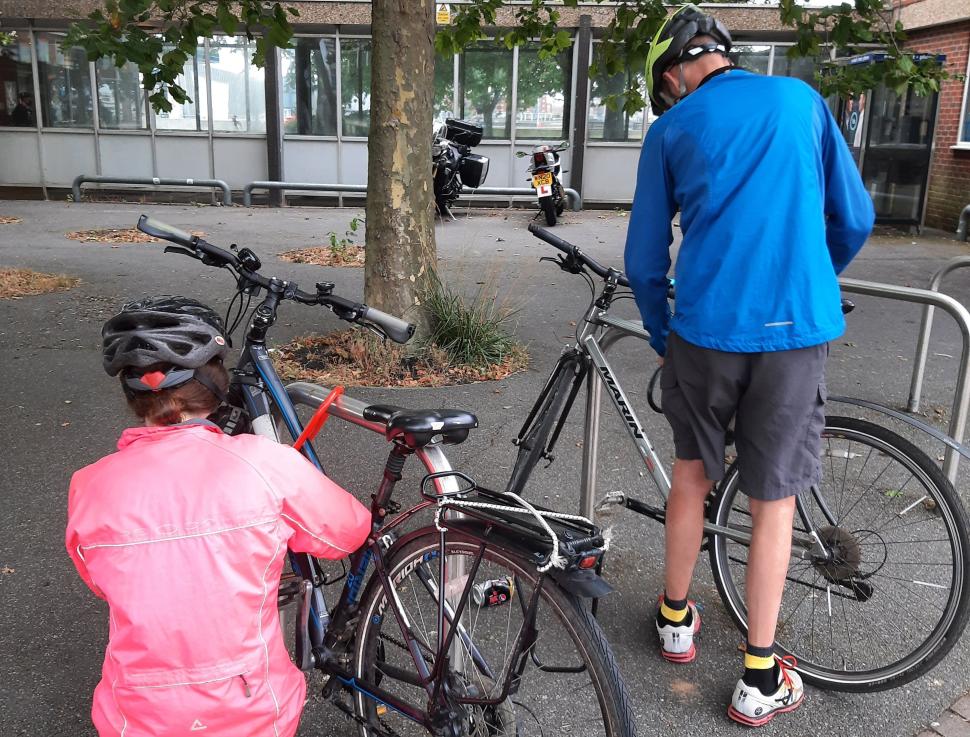
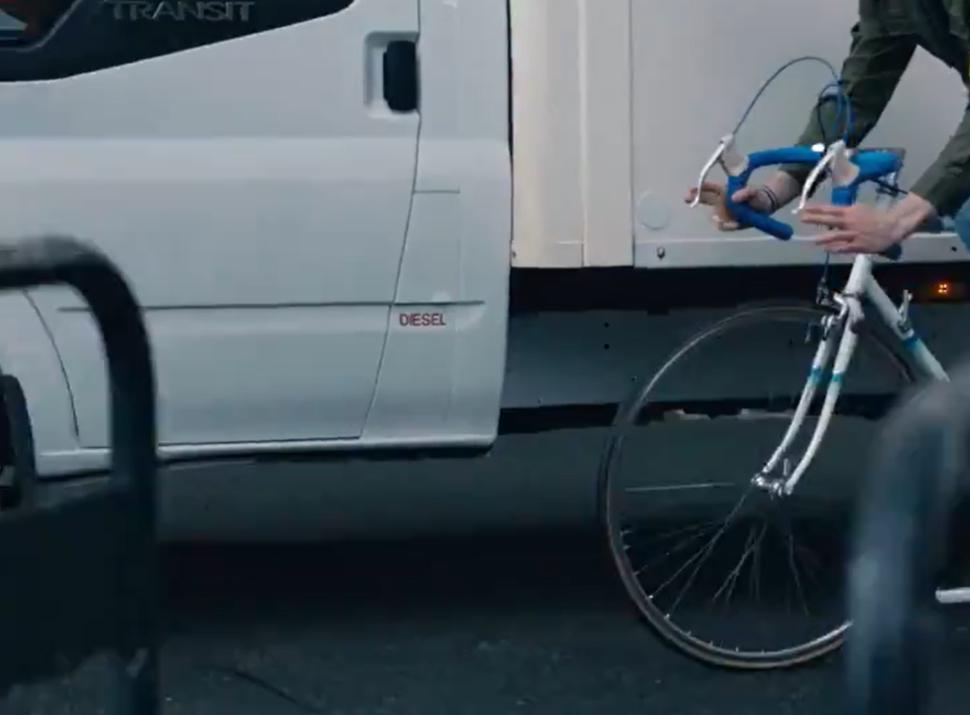
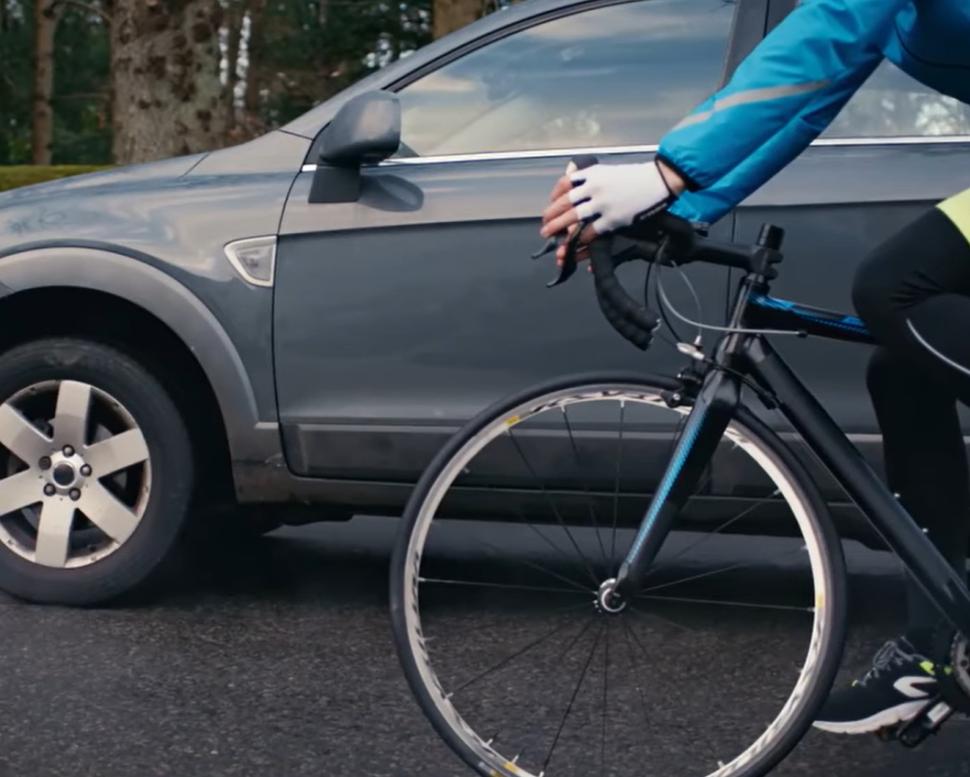
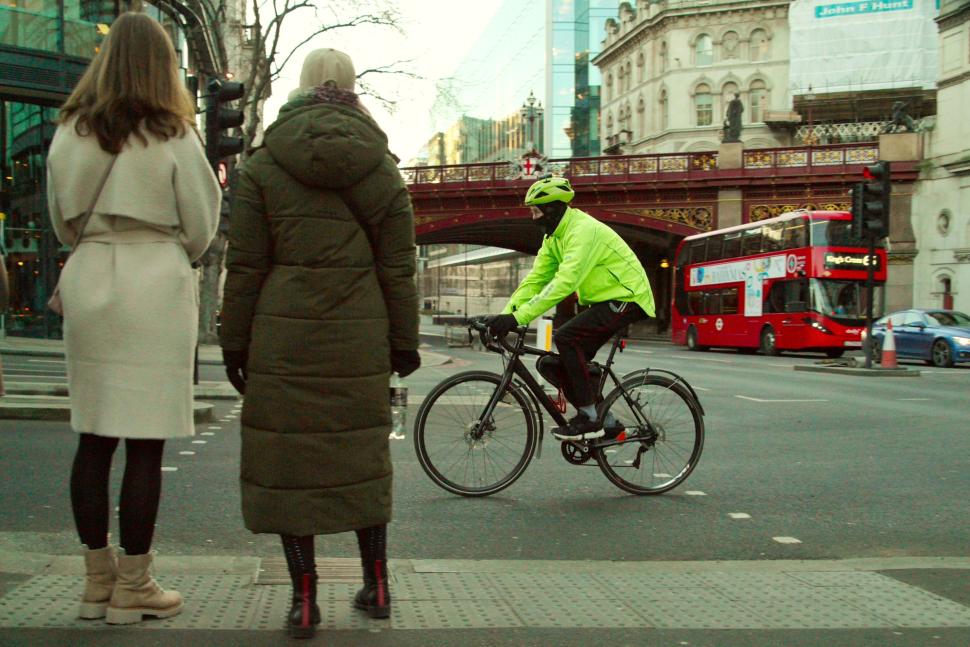
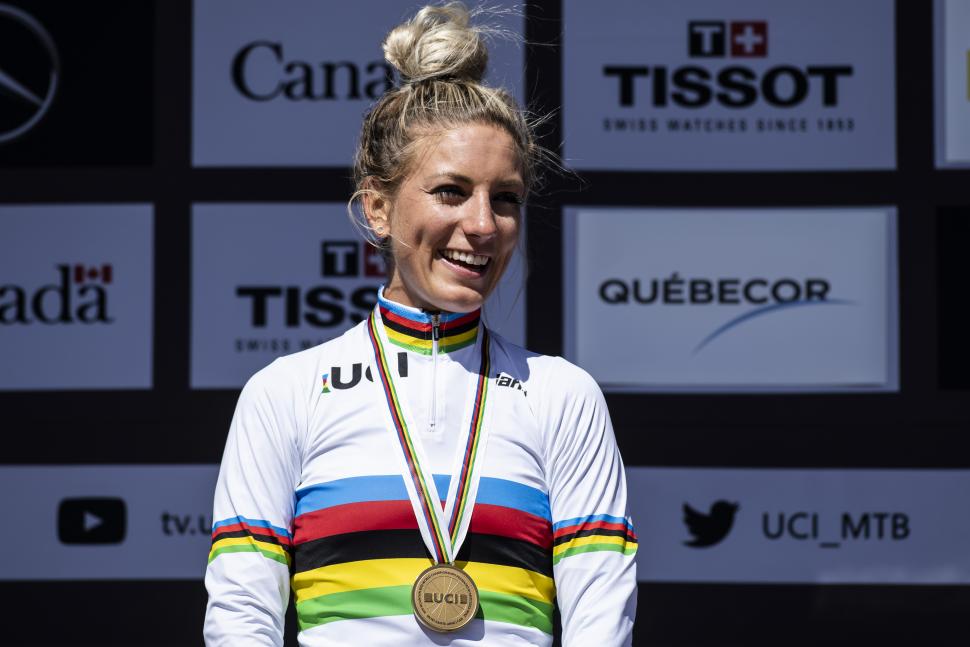
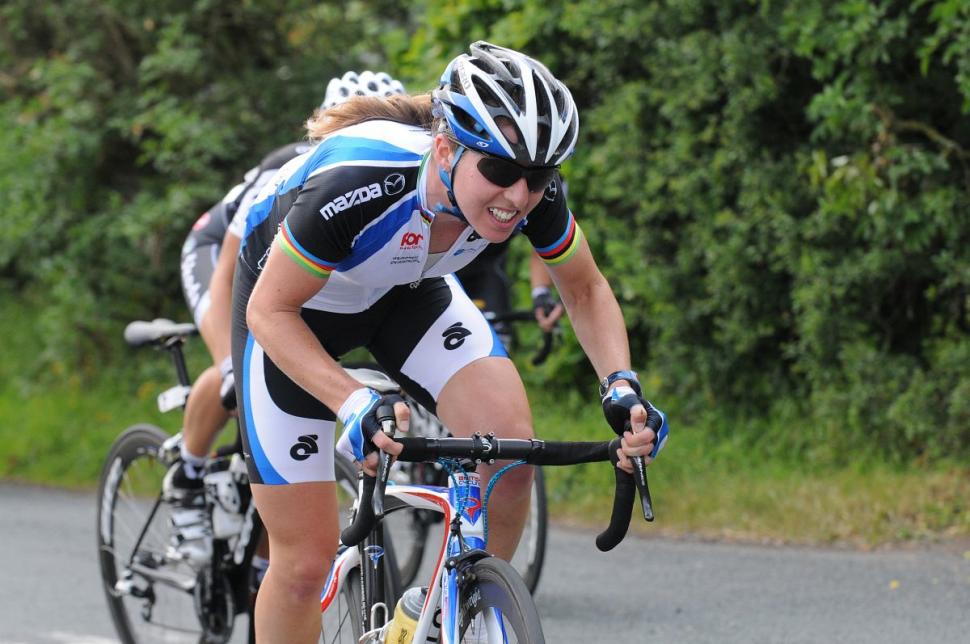
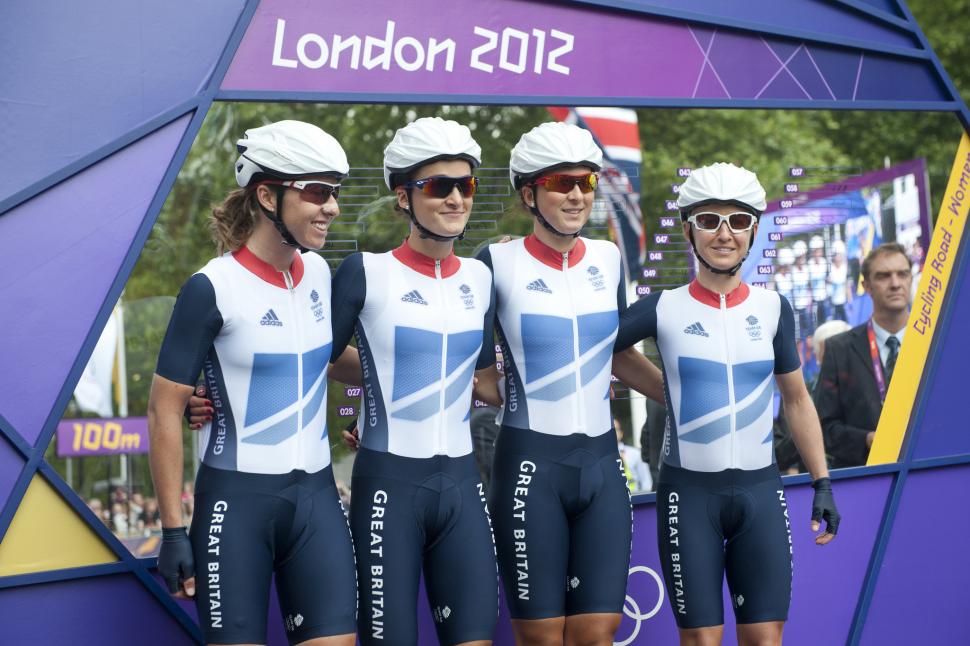
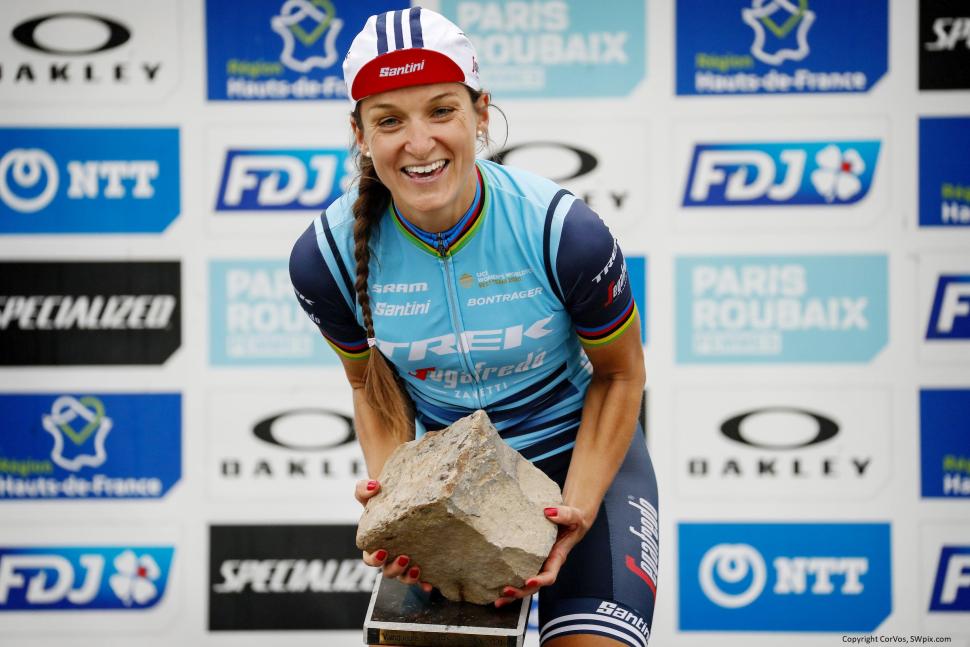
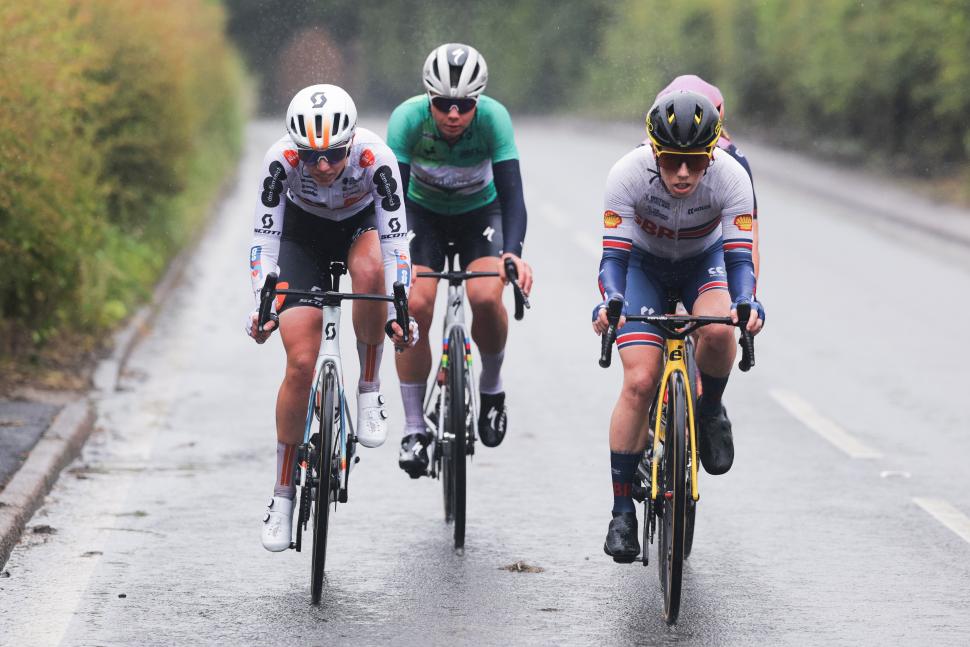
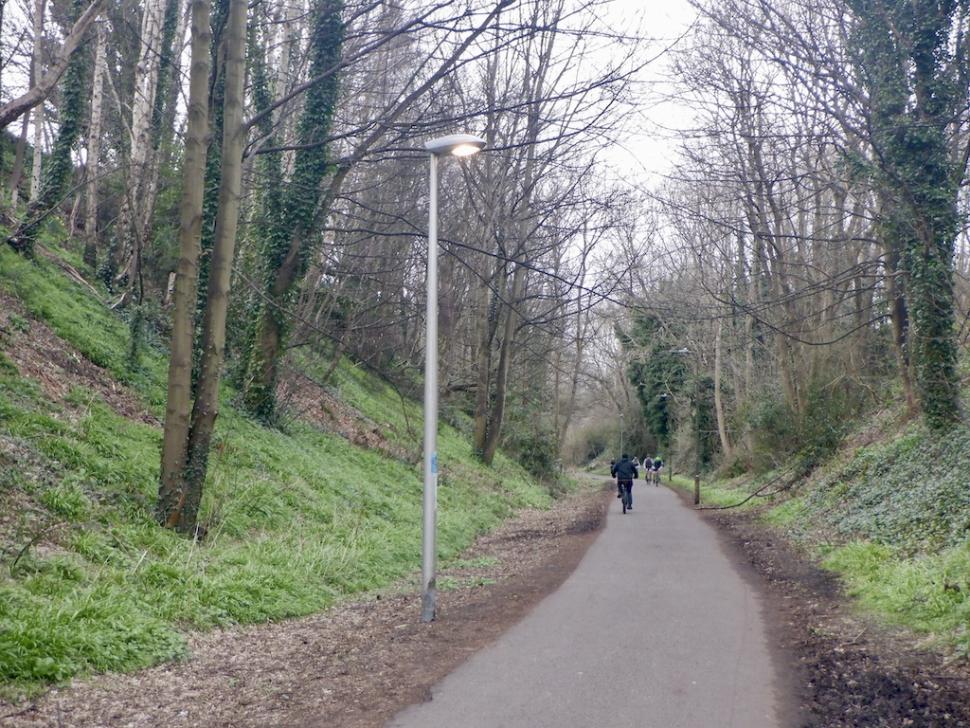
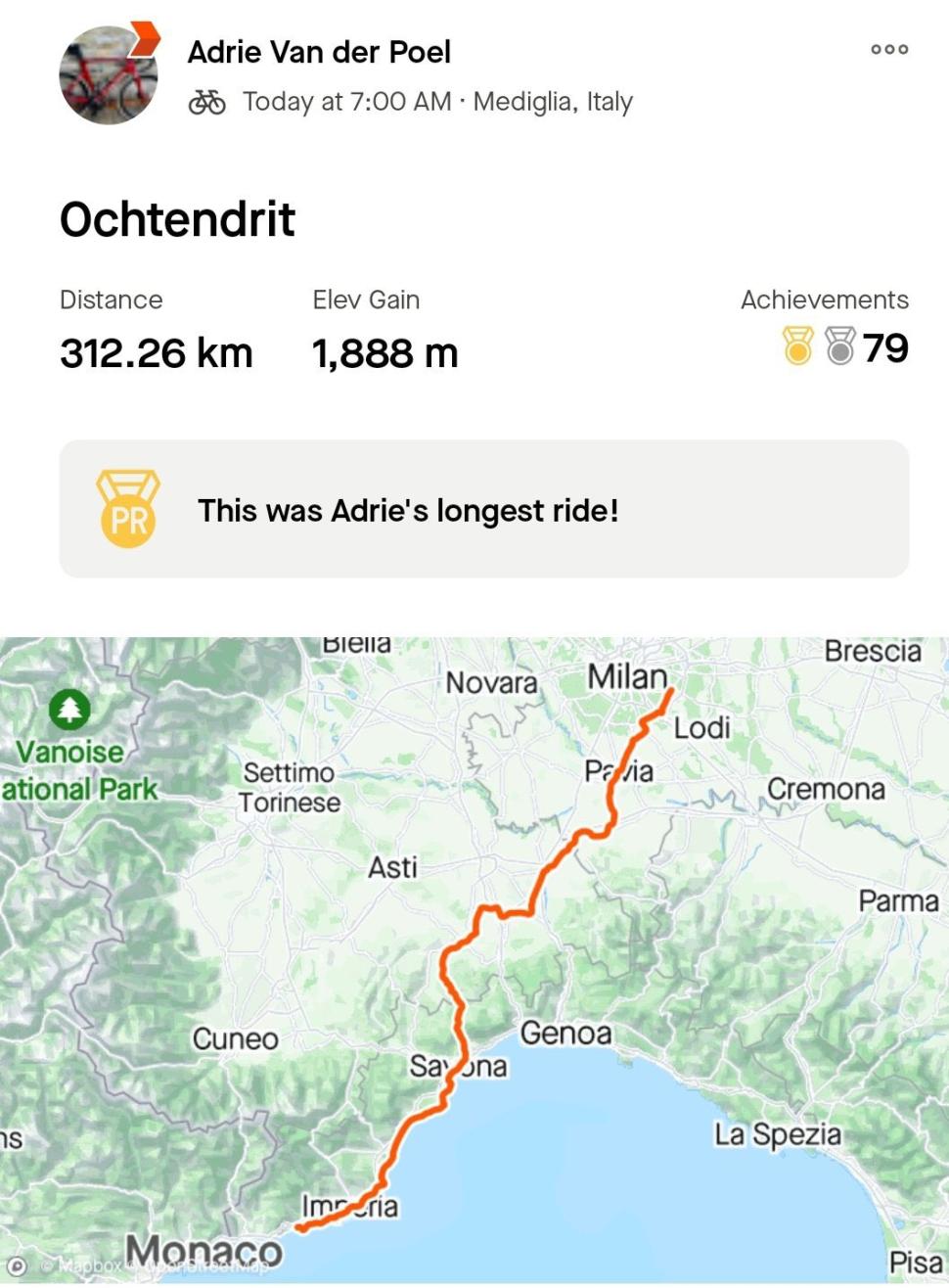
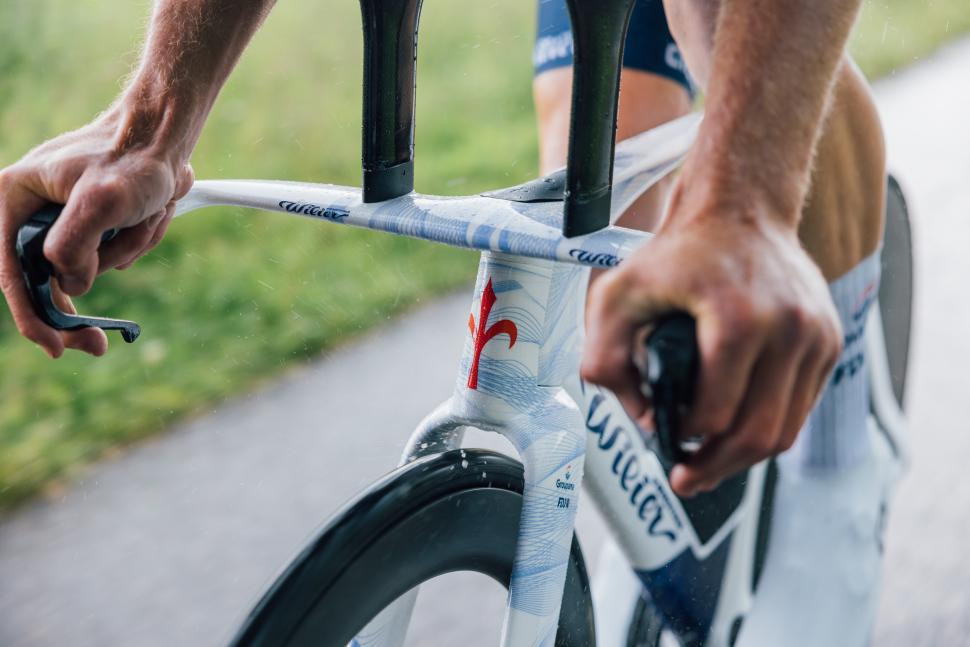
Add new comment
42 comments
Wiggins world TT gold 2014
Well quite, and that's the daft thing a debate about trade teams supporting womens cycling, and we're left counting how many world championships British riders have won for some reason like that's the compelling reason to have a trade team.
Do Visma Lease a bike sit there and worry Vingegaard doesn't even take part in them ?
Oh well it got their click quota up for the day at least.
Ratcliffe (sic) is only interested in screwing the british taxpayer.
Simply don't understand why any team should feel obliged or be criticised about developing a women's team.
Financially it barely makes sense to run a men's team and we see teams go to the wall regularly. Wonder how many of these commentators would sink millions into their own vanity project ?
Perhaps you should consider chauvinist extrordinaire Partick Lefevre, who dismissed having a womens team in typically derogatory fashion, only to then have one of his leading sponsors move elsewhere because they wanted to join a team that had both mens and womens teams. Low and hehold, shortly after securing a replacement sponsor, Lefevre set-up a womens team.
Moral of that tale? Sponsors are now seeing value in the womens side of the sport - not to the same degree as the mens side, but enough to want to be part of it.
Perhaps Mr Radcliffe is too distracted by his other play things to think about funding a womens team, but remember, the budget for a womens team is peanuts compared to the sums he sees regularly in football. On the other hand, he's a business man, and is unlikely to do anything that he isn't convinced provides value to Ineos brand ... he could be right, or he could be missing out, either way, does it matter given the womens side of our sport is clearly growing pretty well.
Theoretically you are correct. If you look at the world purely as it currently exists then yes, womens sport is a non-starter at the elite level in many sports and the idea of equal prize money is pie in the sky.
When you look at it from a slightly more sympathetic point of view you realise that the reason this is the current landscape is because there has been a complete lack of funding and pathway for women to become elite/professional sportspeople. Sometimes you have to subsedise something for years before it can stand on its own.
Womens football is a good example of something which has received increased funding for years now and as a result is starting to stand on its own feet. I would wager that in 10 years it will be very much its own beast. That wouldn't have happened if every time it came to supporting it financially people just said "it makes no money".
People get far too carried away with their hot takes and venom when it comes to supporting womens sport and think that magically women should be earning the same as the men whilst generating a fraction of the revenue, interest and not actually delivering the same absolute level of performance but there is a middle ground where womens sport is supported so it can grow into its own beast.
And that is where we get to the crux of the matter ... elite level cycling is dependent for its very existence on the input of commercial / corporate sponsorship. Those sponsors are, generally (not always) unlikely to be willing to pump money in for years before something becomes sustainable on its own.
The male version of the sport is high profile enough (particularly when it comes to the Giro, Vuelta, Tour) for them to justify putting in some money for the exposure it gives them, the female version not so much. Then it becomes a vicious circle ... can't get more money without more media exposure > can't get more media exposure without more money going in.
It's not just that though, is it?
There is an underlying reason here: Women do not engage in or watch sport at anywhere near the rates that men do. E.g.: https://www.ey.com/en_uk/news/2024/06/gender-gap-is-narrowing-in-gen-z-a...
Even for utility cycling, it's more men than women, in most places (with some exceptions): https://itdp.org/2022/07/06/cyclings-gender-gap/
Minor pedantry (we are where we are in the UK) but of course that is for particular reasons (here's a lot of what's keeping women - and men - from doing so). But in the places where people cycle most, more cycle trips are taken by women than men (more on that here)...
Sponsors aren't just interested in exposure though, they're interested in positive exposure - they want to look good, not just be seen.
If the effect of completely neglecting women's sport is that they look bad then they'll stop doing it.
Which is where fans complaining and media covering that come in - yes, it is 'just business' but that doesn't mean it's not worth talking about, it means that it is.
During the war years women's football was incredibly successful and attracted huge crowds. After the war, the FA banned women from playing football and they weren't even allowed to train on most football pitches, which is why the women's game died off. Now that it's getting some exposure and investment it is coming along very well. I can remember watching a women's game about 20 years ago and standard of football then compared with today is like night and day.
Is making financial sense much of a consideration when it comes to billionaire playthings. Ratcliffe via Ineos also runs an America's Cup racing yacht. What is it they say about sailing, it's like standing in a shower tearing up £50 notes? At least a women's cycling team would have some social value.
Pages